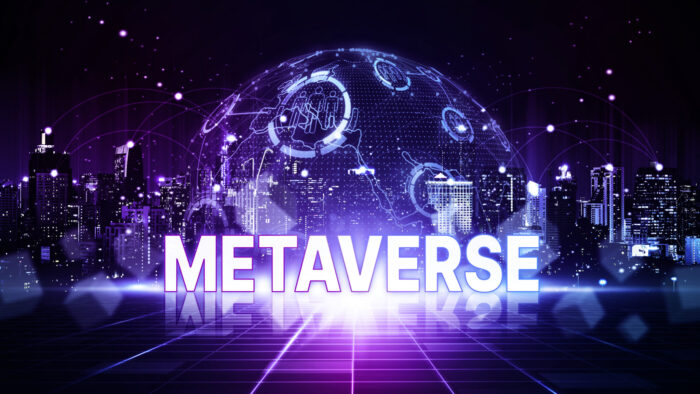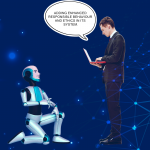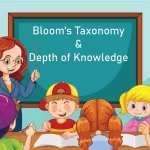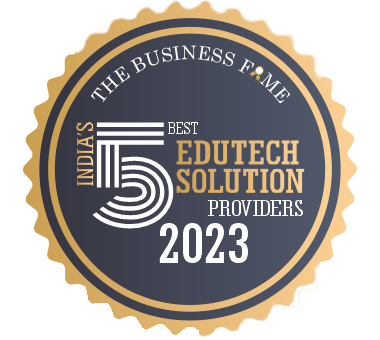Ever since the advent of the Metaverse, education has been a much talked about subject because of its linear, unified, and formal nature of industry. However, as the metaverse started roping in education companies into its radar, we have constantly been wondering if it is going to help bring about an education revolution. Now that things are clearer than before, we did a little research to try and analyze how Eduverse is going to be implemented and corroborated in the jazzy Meta universe. Read on to find out the deets.
What is Metaverse?
Metaverse is a concept of an alternate 3D reality that exists in a virtual world, one that can connect users across several aspects of lives and across multiple platforms. Driven through latest technologies like Artificial Intelligence, Augmented Reality, and Virtual Reality, users can access the virtual world through VR headsets or web browsers. Besides supporting gaming and social interaction, Metaverse is also expected to combine education, economies, digital identity, decentralized governance, and other applications, bringing multiple aspects of our lives together.

Why Do We Need Metaverse in the Education Sector?
All industries have been adversely affected by the Covid-19 pandemic. All organizations, including educational institutions, have turned to online communication. As online learning lacks collaboration and hands-on learning experiences, it may have a significant impact on students’ performance and motivation to study. However, metaverse allows students to immerse themselves entirely in the experience of a digital classroom environment. As a result, the students learn in an interactive environment and closely interact with instructors. Every activity, including classes, workshops, projects, experiments, and seminars, takes place in real-time, maximizing student involvement.
Using VR in education is an excellent way to deliver theoretical and practical knowledge. Through virtual reality, abstract problems are made tangible. It boosts students’ operational skills, offers an immersive learning experience, and promotes active class participation, thereby making learning more enjoyable and engaging.
How Will the Metaverse Change Online Education?
As the popularity of online learning increases, educators, instructors, and institutions are seeking correct ways to make it more engaging and interactive. Identifying how the four crucial aspects of the metaverse affect education is required to answer the central question about your priorities for this discussion. A brief description of the technological capabilities connected with every factor of the metaverse for education can give an impression of how the metaverse could impact education. Below is a brief impression of how the metaverse can assist education:
- Augmented Reality Uses in Education

AR technology makes it possible to create digital overlays over real-world objects that can create the illusion of three-dimensionality. With augmented reality in education, you can explore various educational applications of the metaverse. Using AR, for example, can help visualize invisible parts and solve problems rapidly.
- Lifelogging Uses in Education
With the help of lifelogging, one can record their daily life and thoughts productively. Most importantly, focusing on self-learning experiences can encourage the use of the metaverse in education. It is possible to review and reflect on the daily events in an individual’s life. Thus, the metaverse can serve as a valuable tool to represent and implement feedback and learning from life in the real world. Additionally, it offers the opportunity to analyze different types of information critically.
- Promoting Communication
Metaverse allows instructors to create rooms where they can organize internal meetings in order to counteract feelings and encourage interaction. Meanwhile, learners can construct study rooms where they can collaborate, study together, and socialize. All users can connect using their avatars, easily share files, interact with the same objects, or play games using the same avatar. Through these features, learners are encouraged to connect with classmates and instructors, which enhances the learning experience.
- Mirror World & Education

A mirror world is another crucial component for answering “How will the metaverse change education?” owing to the immersive nature of virtual learning spaces. Through the use of mirror worlds, education and learning would be able to overcome environmental limitations and physical limitations. For example, video conferencing tools can represent mirror worlds for performing online real-time classes.
- Virtual Reality in Education
When researching educational applications of the metaverse, you need to think about the educational implications of virtual reality. Using VR to simulate practical affirmations in digital environments can serve as a milestone in the advancement of the education industry. As an example, firefighting training can be expensive in the real world. Nonetheless, a virtual reality simulation of firefighting exercises could be a very cost-effective alternative.
Benefits of Using Metaverse in the Educational Field
Using the metaverse can transform the education sector and provide a host of benefits to students. Find out the topmost vital benefits of the metaverse in education:
- Interactive Curriculum & Practical Application of Concepts

Students having fun with VR headset at home – Virtual reality and metaverse gaming concept with people having fun on 3D videogames – Shape of technologic gears has been modified – Bright filter
Educators can offer an interactive curriculum that incorporates real-time experience by using metaverse. For example, normally, students can’t witness rocket launches or track satellite movements in space. In the metaverse, students can experience the launch room, minute-by-minute separation of each rocket stage, and the final orbit of the rocket. In addition, students can learn about the various stages of a rocket launch.
The use of technology like Eduverse in the classroom has proved beneficial to many students. Metaverse represents the next phase of this evolution. As a result, students will be able to learn concepts virtually in real-world situations and enjoy enhanced access. Besides, virtual reality/Metaverse can be used to teach practical tasks like performing advanced medical surgeries and carrying out astrophysics experiments.
- Gamification
It is possible to make learning fun with metaverse. When students are given an objective, learning automatically becomes more engaging. With gamification elements such as badges and quests, students can be encouraged to finish tasks, stay focused, and complete all their work.
As an example, students might find it beneficial to explore flora and fauna through a virtual rainforest. After the discovery of the fauna and flora in the rainforest, students can create their own forests by selecting avatars of the species discovered. This allows them to learn about the plants in greater detail.
- Enhanced Test Results
Despite the fact that metaverse facilitates students’ acquisition of knowledge and mastery of specific fields by involving them in interactive experiences, its true effectiveness can only be measured by the outcomes it produces. Students who get high grades can make this a convincing and easily acceptable argument to teachers, parents, and other members of the teaching fraternity.
It was determined through a study that immersive virtual reality learning was effective in improving test scores. Compared to the control groups, most students who participated in the VR program scored higher. In conclusion, immersive virtual reality learning has been established as a viable alternative for educational storytelling.
Regardless of how skeptical people may be, the metaverse is truly the next stage of the internet, and it has already arrived. The gaming industry has been there first in terms of exploring its capabilities. It will eventually find its way into other areas as well. As for eLearning, it will benefit significantly from the metaverse’s immersive capabilities, making virtual learning environments more lifelike and making learning itself more engaging and experiential. Through the Eduverse, students can experience the aspects of a metaverse in education with animation, storytelling, 3D design, etc. Most importantly, by using emerging technologies, EduVerse aims to tackle education industry challenges.

















